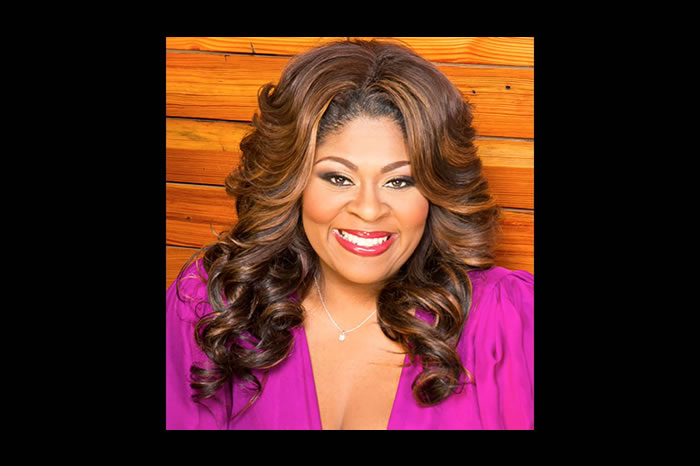Normally, on Wednesdays, I choose a topic related to whatever I need help with, find 3-4 scriptures pertaining to it, and then make it my meditation for the day.
I set my alarm for every hour depending on what time I start. Mostly, I do it on the hour. For instance, when I am thinking heavily (worrying), I choose “trust” as my meditation, find 3-4 scriptures relating to trust, and on the hour, I read those scriptures and pray for God to teach me to trust Him more.
[Word of Wisdom: Don’t ask Him to do this until you are ready. Not almost ready, but ready-ready.]
Today, I decided to go a different route. I asked God, instead, “What would You have me meditate and pray on today, Lord?”
He said, “Focus.”
Word of the Day
So, I stuck my finger in the Bible and it opened to Exodus 24-25. Unlike the other times where God would confirm what He told me, I didn’t see the word focus anywhere. But, this verse caught my eye:
“Then Moses entered the cloud as he went on up the mountain.
And he stayed there forty days and forty nights.”
Exodus 24:18 (NIV)
Revelation: Moses was in the Presence of God, as the glory of the Lord had settled there. And for forty days and forty nights, his eyes were focused on God.
Furthermore, at the end of the forty days, he came down with the Commandments and his face was radiant (Exodus 34:29-30). The people around him were afraid to come near.
Team, we have a word today.
But first…
Beyond Your Curtains
We can look into a window and see what is housed behind it. Windows are also a protection against the elements while simultaneously allowing light in. When the sun is particularly hot or bright, like in the southern states, sometimes we put a tint on the window to lessen the heat. When the nighttime comes, we close the blinds for the sake of privacy; darkness remains on the outside unless we choose to venture into it.
What the soul takes in, the soul takes on. What seeps through the window can illuminate or darken. If your eyes take it in, it becomes a part of you.
And, sometimes what we take in diminishes or destroys our focus.
What Does Our Playbook Say About Focus?
 “Why are you down in the dumps, dear soul? Why are you crying the blues? Fix my eyes on God – soon I will be praising again. He puts a smile on my face. He’s my God.” (Psalm 42:5)
“Why are you down in the dumps, dear soul? Why are you crying the blues? Fix my eyes on God – soon I will be praising again. He puts a smile on my face. He’s my God.” (Psalm 42:5)
When our eyes are not focused on God, we forget to praise. We forget that troubles are temporary. We forget to smile and to rejoice in the Lord. Our troubles become part of our identity. A part of us becomes bitter, saddened, and averse to praise.
This does not in any way mean that we ignore what we’re facing. As the saying goes, “Denial is a river in Egypt.” The river keeps flowing whether you look directly at it or turn your back. But what it says is that you being down in the dumps and crying the blues takes away from your ability to focus on God in order to cross the river and get to the other side of it.
“God teach me lessons for living so I can STAY THE COURSE. Give me INSIGHT so I can do what You tell me – my whole life one long obedient response.” (Psalm 119:33-34)
Let’s think about the river again.
In order to stay the course, we must remain focused on God. The minute we look left or right, we begin to swim either left or right instead of straight ahead toward the goal.
Where your eyes go, you will follow. The more insight or inner vision from spiritual eyes we have the better we’ll see what God is trying to show and tell us. I know we hear with our ears, but insight is like seeing, hearing, and understanding all at once. It’s when a thing clicks and you have no reason to have understood it except through God’s revelation to you.
“I keep my eyes always on the Lord. With Him at my right hand, I will not be shaken.” (Psalm 16:8)
When we swear a solemn oath, we place our right hand on the Bible. It means that we will stand in truth. When we say someone is our right hand, it means they are our go-to, our ace. If we go into a dangerous situation (like crossing a raging river) with Ace, we know that whatever happens they aren’t going to abandon us. It boosts our confidence and gives us the ability to focus on our task without worry.
Think about this. Jesus is seated at the right hand of the Father. If He (The Way, The Truth, and The Life) can be the right hand to THE MOST HIGH GOD, He can surely be trusted to be yours! Besides, who can you trust more that someone who’d give His life for you?
Someone who’s already done so.
Now, back to Moses…
The Israelites were afraid to come near Moses because their eyes were not accustomed to the glory of the Lord. Their days had been spent in the darkness of their false gods. God’s people were used to average. They were used to everyone looking the same and sounding the same. They were used to being afraid of being who God called them to be.
The truth is, sometimes, we’re Moses. And sometimes, we have surely been the Israelites. Before Christ, right, Team? But let’s talk as if you were Moses (who was scared at first).
Moses had been in the presence of the Lord and came down with a gift from God to present to the Israelites. That’s why when you branch out and do the new thing that God has given you to do, you get criticized and attacked. THE LIGHT of the Lord SHINING THROUGH YOUR WINDOWS is beyond the worldly comprehension of the Israelites. They can’t even make eye contact with you because they’d be blinded. Or, they might be forced to see their own unwillingness to step into who God has called them to be.
In any case, we must shield our eyes from the influence of the world and those who prefer to do everything but focus on God.
So, What’s the Play Call?
It comes directly from Psalm 121:1-2:
“I lift my eyes to the hills, where does my help come from? My help comes from the Lord, the Maker of heaven and earth.”
Remember the power, strength, and guidance that God offers to those who keep their eyes on the hills – at the mountaintops where the glory of the Lord remained with Moses. If we, like Moses, focus on the Lord, He will send you out with a hope and a promise that is greater than any of your problems combined. And He will give you the ability to see the solution that He has purposed for you.
What you see depends on where you decide to focus.




